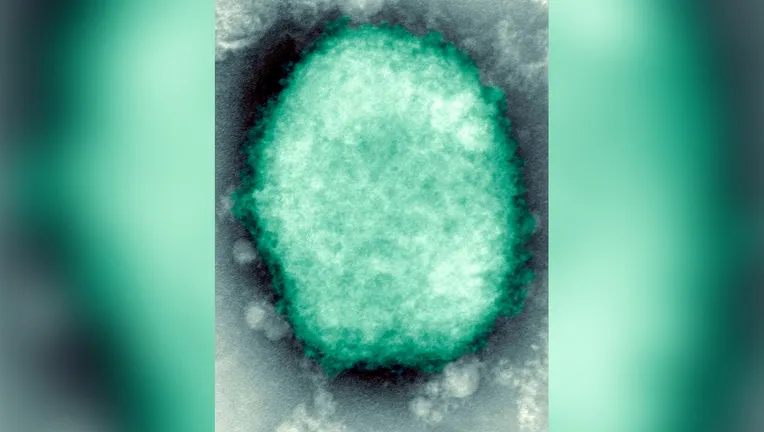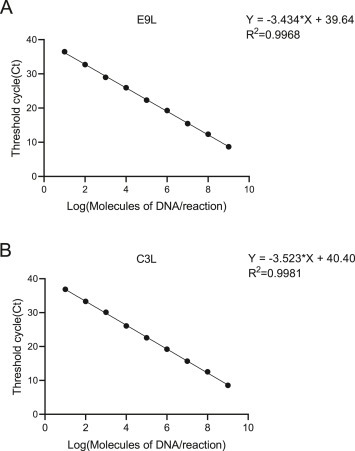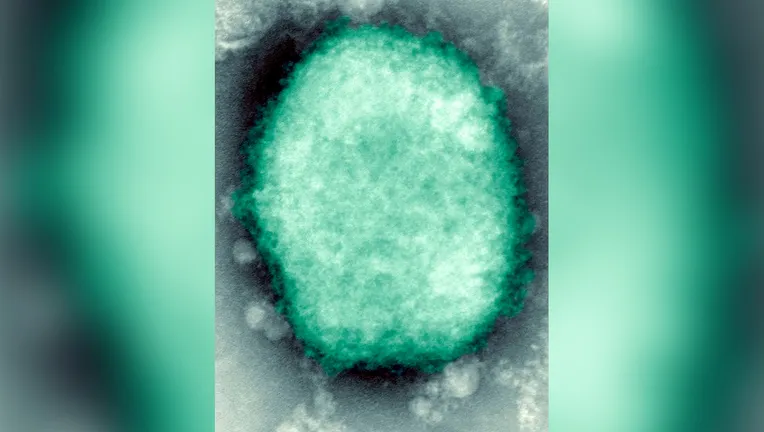
Article originally posted on Jewish TV Channel. This article was republished by The Gateway Pundit with permission.
A comprehensive scientific document has come into the hands of the Jewish TV Channel that gives compelling evidence that Wuhan scientists recently researched the Monkeypox virus before its current impact as it spreads through the world.
As many countries are breathing easier due to weakening of the Corona Virus, a new threat to the health of the world’s citizens has arrived. Monkeypox is causing world leaders to dread the prospects of facing another round of economic destabilization caused by the endangerment of public health issues. JTVC investigators traced a scientific trail surrounding research into the virus, directly to where the Corona Virus was alleged to have been let loose on an unsuspecting world.
Jewish TV Channel Statement: ‘We earnestly state that a world of difference exists between benign scientific research and intent to cause a biological weapon. However, what cannot be ignored is the lack of recognition about the role of Chinese scientists into the research of Monkeypox – before – its spread has become public knowledge.’
Presented below is the bio of the Director of Wuhan Institute of Virology, who’s name prominently appears of the Monkeypox research article. JTVC reinforces its position that many of the scientists involved in the Monkeypox research have previously undertaken meaningful studies concerning man’s well being. It is the silence after the fact that concerns us.
Xinwen CHEN, PhD,, Professor. He obtained his BSc and MSc from the Department of Biology, Central China Normal University in 1986 and Henan University of Technology in 1988, respectively. In 1998, he obtained his PhD from Wageningen University in 2001. He subsequently worked at the University of California at Berkeley and Wageningen University as a visiting scientist. Dr. Chen is one of the scientists in “Hundred-talent Project” CAS and one of the awardees of the “National Outstanding Youth Fund”. Dr. Chen’s current positions include Director General of WIV, a member of the institute’s Academic Committee, a member of the institute’s Academic Degree Committee. In addition, Dr. Chen is Editor- in-Chef of Virologica Sinica, a member of the Council of the Hubei Society of Microbiology and a member of the Council of the Hubei Society of Biotechnology. Dr. Chen as the chief scientists assume “national major scientific research projects”, and also assume multiple projects such as 973, the national natural science foundation and institute project. Dr. Chen has more than 130 publications, of which more than 70 are registered in the SCI index. He was also awarded second prize in the “National Innovation Award” in 2005, awarded first prize in the “Natural Science of Hubei Province” in 2011.
Excerpts from the comprehensive paper:
Article Title: Efficient assembly of a large fragment of monkeypox virus genome as a qPCR template using dual-selection based transformation-associated recombination.
Abstract: Transformation-associated recombination (TAR) has been widely used to assemble large DNA constructs. One of the significant obstacles hindering assembly efficiency is the presence of error-prone DNA repair pathways in yeast, which results in vector backbone recircularization or illegitimate recombination products. To increase TAR assembly efficiency, we prepared a dual-selective TAR vector, pGFCS, by adding a P-ADH1 URA3 cassette to a previously described yeast-bacteria shuttle vector, pGF, harboring a P-HIS3 HIS3 cassette as a positive selection marker.

This new cassette works as a negative selection marker to ensure that yeast harboring a recircularized vector cannot propagate in the presence of 5-fluoroorotic acid. To prevent pGFCS bearing ura3 from recombining with endogenous ura3-52 in the yeast genome, a highly transformable Saccharomyces cerevisiae strain, VL6-48B, was prepared by chromosomal substitution of ura3-52 with a transgene conferring resistance to blasticidin. A 55-kb genomic fragment of monkeypox virus encompassing primary detection targets for quantitative PCR was assembled by TAR using pGFCS in VL6-48B. The pGFCS-mediated TAR assembly showed a zero rate of vector recircularization and an average correct assembly yield of 79% indicating that the dual-selection strategy provides an efficient approach to optimizing TAR assembly.
Introduction: One of the characteristic features of yeast is that exogenous DNA fragments can be efficiently taken up and recombined. Typically, two linearized DNA fragments with 60 base pairs (bp) of overlapping sequences can be readily recombined and ligated by homologous recombination (HR) in yeast (Noskov et al., 2001). Based on this feature, transformation-associated recombination (TAR) was developed.
Main Body Excerpts: Monkey poxviruses (MPXVs) are large DNA viruses with reported genome sizes ranging from 190,083 to 206,372 bp in length.
Since MPXV infection has never been associated with an outbreak in China, the viral genomic material required for qPCR detection is unavailable. In this report, we employed dual-selective TAR to assemble a 55-kb MPXV genomic fragment that encompasses E9L and C3L, two valuable qPCR targets for detecting MPXV or other orthopoxviruses. The dual-selective TAR assembly showed a zero rate of vector recircularization and an average legitimate assembly yield of 79%, demonstrating that PADH1-URA3, serving as a negative selective marker, can optimize TAR assembly by abolishing vector recircularization.
To prepare a qPCR detection template for MPXV, pGFCS was used as a TAR vector to capture and assemble the four synthesized MPXV segments into one large fragment in VL6-48B. Multiplex PCR was performed to screen the candidate assembly products.
Article’s Summary: In summary, our study demonstrated that a PADH1-URA3 cassette can effectively abolish vector recirculation during TAR assembly, promoting the potential use of TAR in genomics and reverse genetics. Nevertheless, more researches are still needed to be done to further optimize TAR assembly efficiency and to refine the administrative rules regarding the biosecurity issues related to DNA assembly.
Jewish TV Channel has obtained the full report together with the names of its authors. Once again, we only question the disturbing fact that this article has not been made public at the earliest possible moment as the world braces for another possible consequential pandemic. Is it possible that researchers engaged in benign studies are having their findings side channeled for something of a more sinister nature?
In bringing this important document to the public’s attention Jewish TV Channel sincerely hopes that it can either avoid a future witch hunt against scientists having the public welfare in mind, or act to curtail activities of a sinister and dark nature if that proves to be the case.
Related article: Wuhan Lab was Experimenting with Monkeypox Last Year – Published Research Report in International Journal in February
The post More Evidence Reveals Wuhan Experiments On Monkeypox Before Virus Struck appeared first on The Gateway Pundit.
